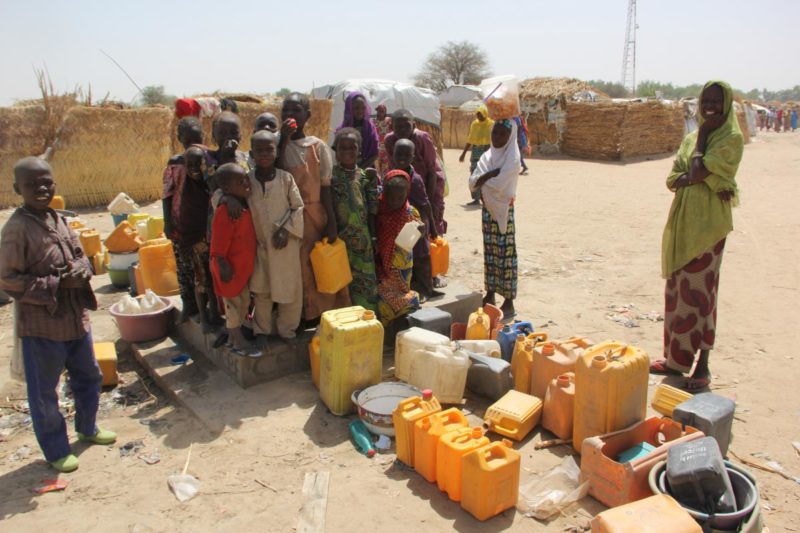A humanitarian organisation, Medecins Sans Frontieres (MSF), has decried the pathetic state of newly-arrived displaced persons in Pulka, Gwoza Local Government Council of Borno State.

MSF, otherwise called Doctors without Borders, expressed concern over lack of shelter and portable water to over 5,000 displaced persons, who recently arrived the town from the fringes of Sambisa Forest and Lake Chad Basin.
The organisation called for immediate intervention to ease their sufferings.
MSF’s Head of Mission, Luis Eguiluz, told the News Agency of Nigeria (NAN) on telephone that urgent measures were necessary to avert outbreak of diseases in the area.
Eguiluz said that hundreds of displaced persons who fled the fighting between the military and Boko Haram insurgents were staying in the open due to lack of shelter.
He noted that the high influx of new arrival of displaced persons compounded the sanitary condition in the area.
Eguiluz added that the displaced persons relied on the few water points and toilets, a situation which might result to outbreak of diseases due to poor hygiene and sanitation.
“More than 5, 000 women and children stay in the open with no shelter, food or clean water.
“The situation is a source of concern as hundreds of people come to the town daily. The temporary shelters in the camp could not cater for them.
“With rain, lack of food, water and poor sanitation, the situation could result to outbreak of cholera, eye and other diseases,” he said.
Eguiluz called on government and humanitarian organisations to scale up activities to control the situation.
The MSF’s official said that the organisation was providing maternity, emergency surgeries, nutrition treatment and other health services to over 60, 000 displaced persons in the area.
He disclosed that the organisation was also providing health interventions in Ngala, Rann, Monguno, Damaturu, Banki and Gwoza local government areas of Borno.
He added that MSF had set up treatment centres to control cholera and Lassa fever in Bauchi and Ebonyi states.
According to MSF’s fact sheet, the organisation had been running a hospital in Pulka since the end of 2016; providing primary and secondary healthcare, maternal care, mental health services and nutritional support for malnourished children.
The statistics indicated that MSF conducted about 13, 000 outpatient consultations and treated more than 1,550 malnourished children in 11 locations in Adamawa, Borno and Yobe states.
Reacting, Mr Bahir Garga, the North-East Zonal Coordinator, National Emergency Management Agency (NEMA), said the organisation was working with humanitarian organisations to control the situation.
Garga disclosed that the agency had concluded assessment exercise on the food needs of the newly-arrived displaced persons in Pulka and Ngoshe communities.
“We are assiduously working in collaboration with Borno State Emergency Management Agency (SEMA) to support the displaced persons.
“So far, we have conducted assessment of the food needs, and other aspect of shelter, protection, water and sanitation will be assessed,” he said.
According to him, the agency in partnership with the United Nations (UN) and other organisations were working to address the humanitarian crisis caused by the Boko Haram insurgency in the North-East.
By Rabiu Sani
